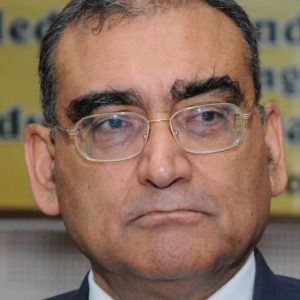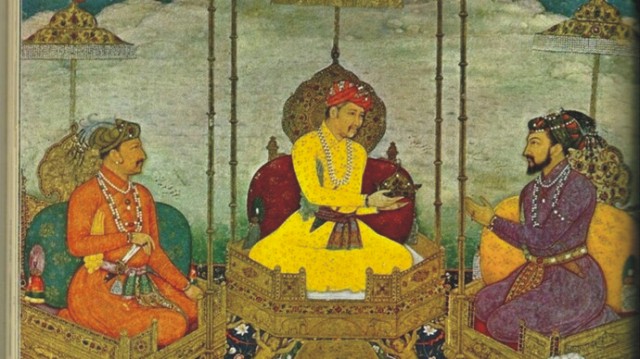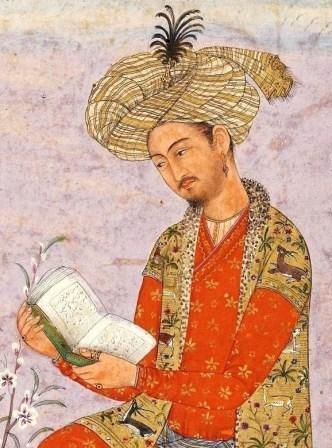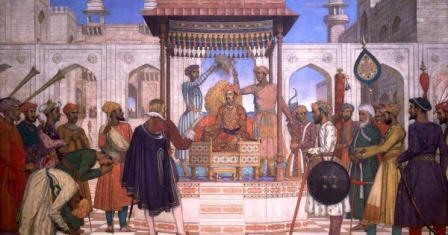

In recent years attempts have been made in India by some Hindutva zealots to paint the Mughals as devils, thieves and religious bigots.
The famous Mughal Gardens in Rashtrapati Bhawan has been renamed as Amrit Udyan, and the NCERT (National Council for Research and Training) has omitted some chapters of Mughal history from the school syllabus.
But what is the truth about the Mughals?
I have often said that the test of every political activity and every political system is one, and only one : does it raise the standard of living of the people? Does it give the people better lives?
From that standpoint there can be no doubt that Mughal rule greatly benefited India. Under the Mughals India became the richest country in the world, with about 25% of the world’s wealth, and 25% of world trade.
Far from looting India, the Mughals made Indians (including Hindus) prosperous.

Babur, the first Mughal ruler, was no doubt a foreigner, but his grandson Akbar was certainly not.
Akbar was born here in India, identified himself as an Indian, and looked after the welfare of the people here. So also were his descendants. So to call the Mughals foreigners and colonialists is silly and inane.
According to Prof Angus Maddison, Professor at Groningen University, Netherlands, and Hony Professor at Cambridge University, during the Mughal period (1526–1858 AD) India experienced unprecedented prosperity in world history.
The gross domestic product of India in the 16th century was estimated at about 25.1% of the world economy.
An estimate of India’s pre-colonial economy puts the annual revenue of Emperor Akbar’s treasury in 1600 AD at £17.5 million (in contrast to the entire treasury of Great Britain two hundred years later in 1800 AD, which totalled £16 million).
The gross domestic product of Mughal India in 1600 AD was estimated at about 24.3% the world economy.

By this time the Mughal Empire had expanded to include almost 90 per cent of South Asia, and enforced a uniform customs and tax-administration system. In 1700 AD the exchequer of the Emperor Aurangzeb reported an annual revenue of more than £100 million.
After the British conquered India they destroyed our massive handicraft industry, and reduced our share of the world’s wealth and trade to less than 3%. From being prosperous and rich, we became a poor country, with a huge number of our people becoming unemployed, destitute and beggars.

As regards the charge of religious bigotry against the Mughals, this too is untrue (though there is a controversy about Aurangzeb).
Akbar, Jahangir and Shahjahan, as well as the later Mughals (i.e. those who ruled after Aurangzeb) were thoroughly secular.
Akbar ( 1542-1605 ) declared his policy of ‘suleh-e-kul’ i.e. amity between all communities, and he gave respect to all religions, at a time when Europeans were massacring each other in the name of religion. Akbar appointed Hindus to some of the top positions, e.g. Todarmal, Man Singh, and Birbal.
This secular policy was continued by his descendants. They would celebrate Hindu festivals like Holi and Diwali, and gave respect to people of all communities.
Thus it is silly to call the Mughals as bigots (though, as I have said there is a controversy about Aurangzeb).
Hence far from trying to erase Mughal history, the truth about the Mughals should be explained to our people. We should be proud that the Mughals were our rulers. ![]()
___________
Also Read:
TRUTH VS FALSEHOOD: BBC – Who is afraid?
Mughal Gardens – Name Changed, But Why?
Industrialization versus Environmental Degradation
Punjab – How a deadly cocktail of Agri-Water-Energy nexus going to destroy it?

Disclaimer : PunjabTodayTV.com and other platforms of the Punjab Today group strive to include views and opinions from across the entire spectrum, but by no means do we agree with everything we publish. Our efforts and editorial choices consistently underscore our authors’ right to the freedom of speech. However, it should be clear to all readers that individual authors are responsible for the information, ideas or opinions in their articles, and very often, these do not reflect the views of PunjabTodayTV.com or other platforms of the group. Punjab Today does not assume any responsibility or liability for the views of authors whose work appears here.
Punjab Today believes in serious, engaging, narrative journalism at a time when mainstream media houses seem to have given up on long-form writing and news television has blurred or altogether erased the lines between news and slapstick entertainment. We at Punjab Today believe that readers such as yourself appreciate cerebral journalism, and would like you to hold us against the best international industry standards. Brickbats are welcome even more than bouquets, though an occasional pat on the back is always encouraging. Good journalism can be a lifeline in these uncertain times worldwide. You can support us in myriad ways. To begin with, by spreading word about us and forwarding this reportage. Stay engaged.
— Team PT


Copyright © Punjab Today TV : All right Reserve 2016 - 2025 |